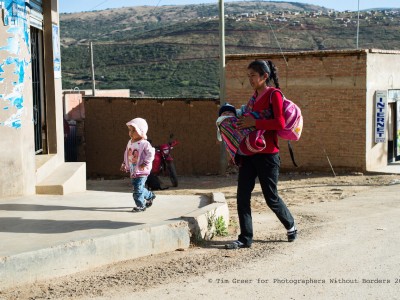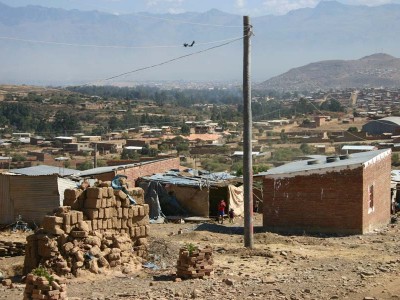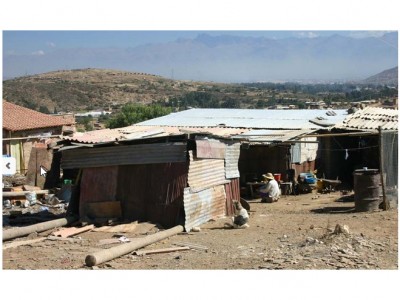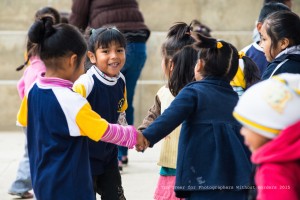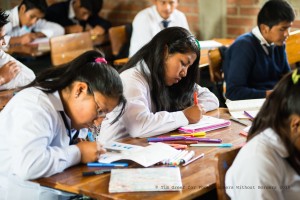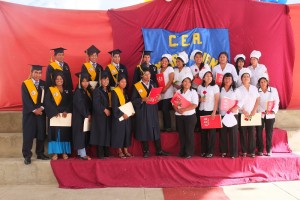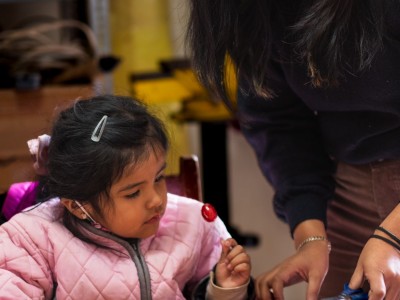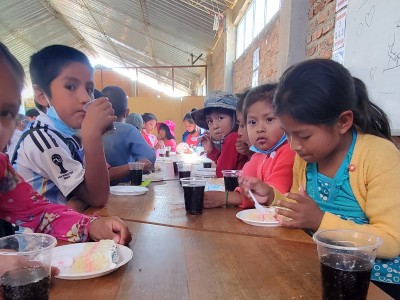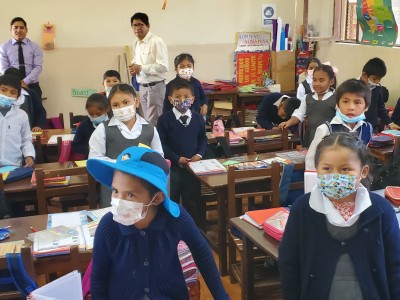History
The Beginning – Phase 1
royecto Horizonte was established in 2004 by Christian Ruehmer, president of the foundation, and Osvaldo Castro, president of the local charitable organisation, St Vincent de Paul Society. Together, they set out to tackle the problem of extreme poverty in the community of Mineros San Juan, Ushpa Ushpa, addressing the urgent need for child education, healthcare and nutrition.
The founders expanded on the work started by the St Vincent de Paul Society in 2001, which included the operation of a basic health center, and the provision of free breakfasts and clothes to the community.
Since then, Proyecto Horizonte has expanded rapidly to offer various programs. Some of these have reached the goal of being sustainable and independent of Proyecto Horizonte and contributed to our success.
Success Stories
Day-Care Centre
School
Health Centre
Night School
he day-care centre was started in 2004 with 1 room, 30 children and 1 teacher. Year by year, we expanded the rooms, the number of children and teachers and the facilities. Whilst the parents always paid a monthly amount, the price was heavily subsidised by Proyecto Horizonte as there was no government support.
In 2013, the day care centre was run by Proyecto Horizonte with 180 children from 1-5 years old in the now complete centre that has 5 classrooms, toilets, kitchen, offices, an AV room as well as a park and patio.
In 2014, the 2 grades of pre-school that had gradually become government-supported and regulated became part of the official school system and formed part of the school although continuing in the rooms of the day-care centre.
Government support and regulation has increased each year for day-care centres as has the involvement of parents in the administration and running of the operations. In 2015, the day-care centre officially became independent of Proyecto Horizonte, however, we provide scholarships and support to the parents and children through our various other programs.
The 80 children from 1-3 years old continue to receive breakfast, lunch and 2 snacks and an education based on providing the stimulation and development needed at this critical age whilst enabling their parents to work without leaving children alone.
Learn more about our scholarships program
he first phase of the construction of the school was undertaken in 2007 and the doors officially opened in 2008 providing education for students from grade 1-8. Each year, the number of classes and students increased until in 2012, we had the first graduating class. In 2012, the second phase of the school was finished enabling the school to have enough classrooms for the expanding grades, rooms for administration, a library and a computer room.
Proyecto Horizonte subsidised the school fees until 2014 when between the government support and the school fees paid by parents the costs of teachers and administration staff were covered without the support of Proyecto Horizonte. This started the transition of the responsibility of the school to the government, community and the parents including the pre-school grades that are now part of the school system.
Proyecto Horizonte now supports the school with the running of the personal development subject, parent’s school, tutoring services and psychological and social worker support.
Learn more about our scholarships program
Purpose built rooms were built in 2006 and services grew to include General Medicine consultations, dentist, vaccinations, laboratory, pharmacy, wound treatment and programs for specific diseases including tuberculosis, rabies and HIV. 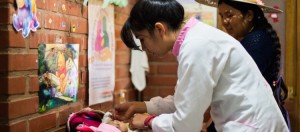
The health centre would see over 100 patients a day on a daily basis and would also hold community education events and outreach to community and schools for vaccinations.
These services were provided in coordination and collaboration with health authorities and in 2016 the health centre was transferred to the relevant authorities to continue the services in line with their responsibilities for healthcare service provision in the community.
ith the construction of the school in 2007, Proyecto Horizonte also opened a night school for adults to enable those who had not finished high school to study for a low price and close to their homes. From 2008 – 2014 we had between 30-50 students in the 5 grades that make up the alternative education system. We had a graduating class every year with 16 students graduating in 2014.
In 2015 we modified our night school program and we now offer a scholarship program that subsidizes the cost of enrolling in continuing education centers of the community, allowing adults to choose the programs that best fit their schedules and needs.
Proyecto Horizonte Today – Phase 2
fter operating and growing for 11 years, with a focus on the, we started a transitioning phase, in which the management of the day-care center was handed to the local OTB of Mineros de San Juan, the administration of the school to the administration of the city of Cochabamba and the Health Center became independent. The latter achieved sustainability thanks to the benefits of the public health system.
The second phase of our program began in 2015. Our focus is broadly on strengthening the communities through a range of programs.
We are reaching the families in our core area and the surrounding neighborhoods through collaboration with educational units (schools), after school tutoring and programs, programs in community centers, basic computer courses, and other short-term services. We operate with a number of long term partner organizations, such as the US based Orphaned Starfish Foundation, which runs the computer programs or
the UK based Emilie’s Charity, which primarily provides grants to our students who move on to university. In addition, we collaborated on specific projects with other organizations, such as World Vision which ran a program for locksmithing.

